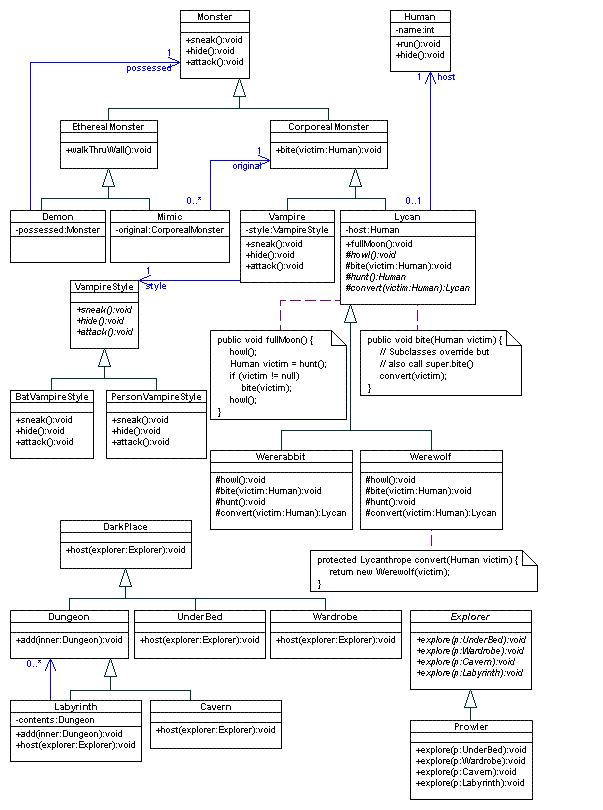Monsters design
From CSSEMediaWiki
Revision as of 22:51, 4 October 2008 by Yugan Yugaraja (Talk | contribs)
This design appeared in the 2004 exam.
Design notes
- This is an incomplete framework of classes that track the behaviour of Monsters. More types of Monster are expected to be added later.
- The DarkPlaces in which Monsters live and the Humans on which they prey are also modelled.
- EtherealMonsters are bodiless; they can walk through walls.
- CorporealMonsters have bodies; they can bite().
- A Demon can exist only by possessing some other monster. It takes over control of the possessed Monster.
- A Mimic pretends to be another CorporealMonster. Usually, it just forwards messages to the original monster, but it can vary behaviour if it wants to.
- A Vampire can change its style between behaving like a person and behaving like a bat.
- A Lycan is a Human turned into a hairy Monster. When its fullmoon() method is invoked, it tries to hunt a Human and bite() him/her. The bite() of a Lycan turns the victim into another Lycan of the same type.
- Monsters lurk in DarkPlaces: UnderBeds, in Wardrobes and Dungeons. If a Dungeon is a Labyrinth, it can have other Dungeons inside it, but it cannot if it is a Cavern.
- Monsters and Humans can use an Explorer subclass to look around inside DarkPlaces.
- Constructors, getters and setters, and many methods have been omitted from the diagram. Make reasonable assumptions where necessary and state them.
Spot the GoF pattern
- Composite: Labyrinth, Dungeon
- Decorator: Lycan, Human (Robert thinks this is not a decorator)
- Decorator: Demon, Monster
- Factory Method: Lycan
- Proxy: Mimic
- Strategy: Vampire, VampireStyle
- Template Method: Lycan
- Visitor: Explorer, Dark Place
